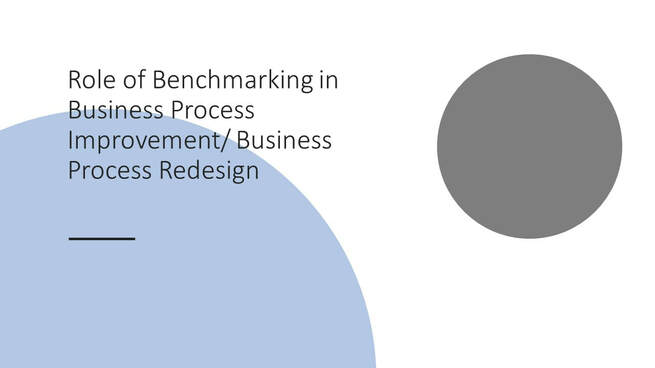Different types of benchmarking include the following-
- Process benchmarking
- Financial benchmarking
- Benchmarking from investor, public sector perspective.
- Performance benchmarking.
- Product benchmarking
- Strategic benchmarking
- Functional benchmarking
- Operational benchmarking
- Best-in-class benchmarking
The benchmarking tool is used in organizations for business improvement, as it clearly shows the way business processes are approached, in what manner they’re being done, how others are doing it, how current performances measure against other organizations and ways in which it can be improved.
Benchmarking, including process benchmarking, entails the development and learning involved by using comparisons as indicators, such as quality, time, productivity, cost, profit and/or value. This practice can take a lot of time to set up since it requires a great deal of development and analyzing of current practices.
Process benchmarking can be performed in increments or to the organization as a whole. It is viewed as a tool for continuous improvement as opposed to a single event.
The reason that process benchmarking is vital to the success of a business is because it clearly shows- where the business can make necessary changes, where there are challenges, suggest new methods for improvement, possibilities, strengths and weaknesses, and ways in which to make the business more efficient and effective.
The main types of process benchmarking include: internal, competitive, functional and generic benchmarking. Internal benchmarking compares one specific process in the organization to another company’s method. It is the simplest form of benchmarking since it requires less research and implementation activity.
Competitive benchmarking refers to the comparison of a current process against main competitors (instead of the entire industry). This is viewed as the most challenging form of benchmarking due to the information that is required.
Functional benchmarking uses the comparison against other organizations within the entire industry and general requires much less research than competitive benchmarking.
Generic benchmarking makes comparison between one’s organization against those of any industry, which may or may not be related to the company’s industry vertical. This makes it easier to avoid legal difficulties as well as increases the chances of gaining information.
The information gathered through process benchmarking can significantly advance a business and help develop a greater advantage over competitors. It is also a good tool for motivating the company into a new and more successful direction.
Follow Shruti on Twitter, Facebook, YouTube, LinkedIn
#ContinuousImprovement #BusinessProcessManagement #BPM #ProcessBenchmarking





















